I’m Tiffany Wu, and I’m spending my summer in Texas at the University of Houston studying chemistry. I have been given the incredible opportunity to work with Professor Baldelli and his lab group researching electrochemistry.
For my project, I am working with Saida Holder, another Pinhead intern, and one of the other interns from another program to synthesize an indium-tin oxide film (ITO films) that is transparent and can successfully conduct electricity. Our project is split into three assignments, one for each of us, and although we are doing different things for the project, the three of us have the aligned goal of successfully producing these films with the desired properties. I have been given the task of analyzing the films and determining the thickness and overall quality of the films that Saida produces with the use of ellipsometry. Ellipsometry is a technique used to measure a change in polarization as light reflects or transmits from a material structure. The measured response is then used to determine optical properties and thickness of individual materials, which is importance for analyzing very thin films like the indium-tin oxide film we are trying to produce. There is still much more I need to learn about ellipsometry and the properties of electrochemistry, that I hope I can achieve during my time here.
On Saturday, June 3rd, Saida and I landed in Houston and stayed at the Hilton University of Houston, which was right on campus. The next day, the dorms opened and we moved into our rooms and met all the other interns from a different program in Texas and the rest of the day was spent unpacking and exploring the campus with our RA. Monday was spent listening to many informative seminars presented by some of the professors in the chemistry department. It was so interesting to hear about the various topics of study that each professor specialized in and I am so grateful that they were so willing to talk to us about their research. We also got to see a demonstration of glassblowing and it was so cool to see how the different flasks and instruments that we use often were made in the shop. On Tuesday, Professor Baldelli introduced us to our research project and gave us some background on electrochemistry. He toured us around the lab and showed us the instruments that we would be working with for the next six weeks. We helped him clean up the office area and we each got a workspace for our duration at the lab. On Wednesday, we were taken to the library and were shown how to use the online resources and find books in the library that could be helpful for our research.
The rest of the week was spent in the lab beginning our research. I was given an Arduino Board (a microcontroller programming board) to use for my analysis and data collection. I spent most of my week learning how to use the board and learning basic aspects of coding. Once I figured out the essential parts of the board, Professor Baldelli showed me how to solder some wires to a battery so I could read the voltage using the Arduino and some code. Soldering is a joining process used to connect different types of metal by melting an alloy and I used it to connect the wires to the battery so I could read the voltage on my laptop with the Arduino. Once I had successfully connected the battery to the board, he then gave me a machine called a function generator and asked me to connect it to the laptop with a program that could read the signals and make a graph with it. I struggled a lot more with the function generator and connecting it to the Arduino with the proper code, but I eventually managed to get graphs that matched the oscilloscope I was using as a comparison. My success with reading the signals from the function generator is especially important for me since it is a very similar process to the one I will be using for the ellipsometer.
My next goal for the following week will be taking the programming I have for reading the signals from the machinery to the ellipsometer and see if I can form a table from the readings it outputs. I’m hoping to make the results produced from the ellipsometer more automated and easier to interpret so we can use it for the analysis of the ITO films.

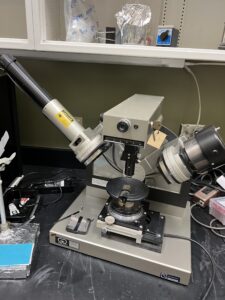
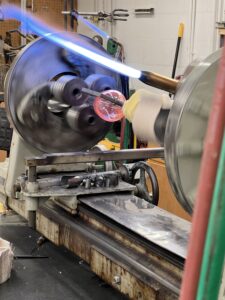
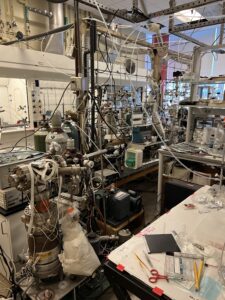
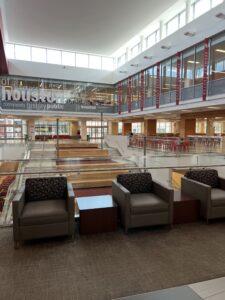
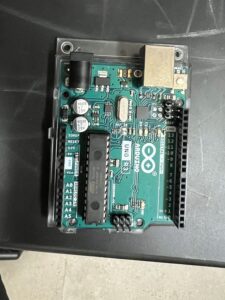
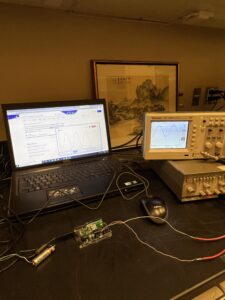
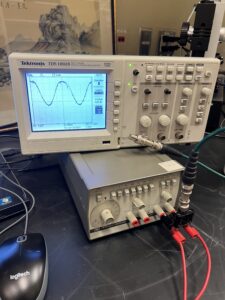
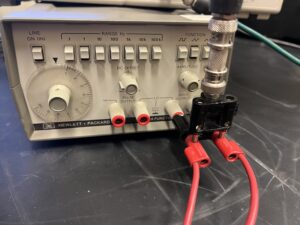
Tiffany, it sounds like you are having an incredible start to your internship! Such an informative blog post from you, I learned a ton from this entry alone! Keep up the great work and I look forward to the next post!